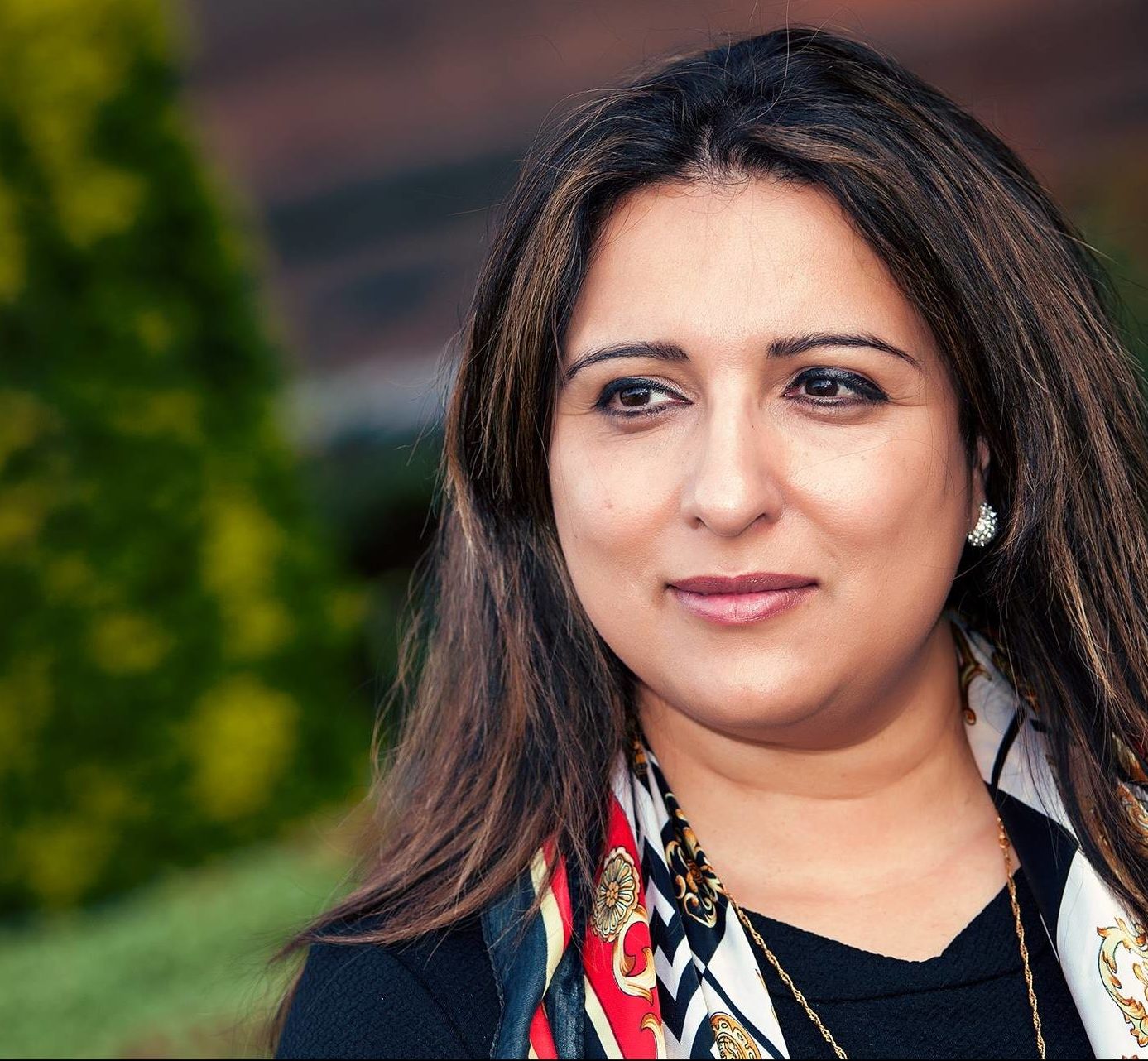A major SNP drive to increase diversity amongst its MSPs has been accused by party insiders of being “window dressing”.
Just one of 22 new candidates with Black, Asian and ethnic minority backgrounds has been so far selected to stand in 2021 Scottish Parliament elections.
The Ferret also heard that complaints about rule breaches in several constituencies had been made to SNP headquarters, which could have disadvantaged BAME candidates.
The party’s drive to support greater diversity – which also included a number of all-women lists, and disabled candidates – resulted in a record number of BAME candidates standing.
However history-making Glasgow Kelvin candidate Kaukab Stewart, who was backed by outgoing veteran MSP Sandra White and is a member of the party’s National Executive Committee (NEC), is the only person of colour to be selected by members so far. She was the first BAME woman to stand Scottish Parliament election in 1999.
Most of the new candidates were picked in early November 2020. The result of the Renfrew and North West contest will be announced on 23 November after an equal number of members got behind candidates Michelle Campbell and Natalie Don.
Party insiders stressed the wider issue was a cross-party rather than SNP specific one. Other party candidate selection processes are still in process though the Scottish Conservatives, though the Daily Record reported that so far only 20 percent of candidate are women.
Currently Justice Secretary Humza Yousaf and Scottish Labour MSP Anas Sarwar are the only MSPs of colour in the Scottish Parliament.
In response to calls for better representation of non-white communities, the SNP’s NEC this year put forward people of colour to fight for selection in every seat.
In an email it encouraged members to get behind the aim to diversify. “We’ve worked with local constituencies to ensure that there is a choice of potential candidates including women, disabled people and people of colour,” the email said. “Now it’s your turn. Please play your part by deciding who you want to represent the SNP in your area.”
However The Ferret has been told of rule breaking in favour of incumbent MSPs, or existing councillors and SNP insiders in several constituencies, which some said further disadvantaged several BAME candidates.
We’ve worked with local constituencies to ensure that there is a choice of potential candidates including women, disabled people and people of colour. Now it’s your turn. Please play your part by deciding who you want to represent the SNP in your area.
SNP HQ
A screen shot of an email leaked to The Ferret, shows that in Clydebank and Milngavie, local activists printed off leaflets in support of local councillor Marie McNair, delivering them to party members’ home addresses. Other candidates standing in the area included Glasgow Girls founder Roza Salih, who works for a Glasgow MP. She came to Scotland with her family from South Kurdistan in Iraq as a child.
As no candidates were given access to members’ data, it is presumed that activists had access to details through the local branch, a rule breach highlighted to party headquarters. But though an investigation concluded rules had been breached, no sanctions were taken against any members.
An email from a party spokesperson, following an official investigation, said it was “unable to find any evidence” to suggest McNair had played a part in the leaflet.
The email continued: “That does not diminish my disappointment in the actions of a few members to seek to influence the views of local members in his manner”. The leaflet, the spokesperson said “rides roughshod over the spirit of an open selection contest”.
Yet no action was taken against McNair who went on to win the selection contest. McNair did not respond to messages and Salih declined to comment.

Meanwhile an investigation into allegations of rule-breaking in Cunninghame North, where incumbent MSP Kenneth Gibson was yesterday declared the winner of the selection process, is still ongoing.
Osama Bhutta suspended his campaign after allegations emerged of rule breaches including the circulation of a motion to all their members in support of the incumbent MSP by local office bearers.
It is claimed dossiers attempting to smear both him and fellow candidate, the former MP Corri Wilson, had been circulated including one titled “The Sins of Osama” detailing his supposed links to Islamic fundamentalism.
Gibson claims there is no dossier and says Bhutta’s supporters had been “willing to fight a vicious and spiteful campaign without any condemnation of their actions from him”. He added: “The majority of SNP members dislike such underhand methods and reselected me resoundingly, with Mr Bhutta coming third.”
Yet Bhutta claimed that BAME candidates still faced discrimination in the selection process. He said: “The last few weeks have been hard going as a person of colour. The selection process is a microcosm of society. There have been the usual internet trolls but this has been different.”
He welcomed the SNP’s “big push” on diversity, claiming this year’s short lists were “a massive step forward”, which might lead to more BAME candidates being selected in coming years.
But he suggested that more should be done to understand the barriers they faced, with polling done about the attitudes of SNP members to race.
“I have a suspicion there are issues, “ he said. “I think if it was understood better there could be an action plan.”
Several Scottish political parties have been embroiled in accusations of racism. Last May, Scottish Labour found itself at the centre of allegations over the handling of a racism complaint made by Anas Sarwar MSP, which led him to brand the process “not fit for purpose”. Just days later a Facebook account linked to a local party branch claimed “there is no such thing as Islamophobia”.
In April, a Scottish Tory activist Lorraine Cullen, who had campaigned with Moray MP and now-Scottish Conservative leader Douglas Ross, was suspended following a series of racist and Islamaphobic posts on social media.
Since 1999 there have been just four people of colour elected to the Scottish Parliament. They have represented only Scottish Labour and the SNP and none of them have yet been women.
All political parties need to take this seriously, not simply providing warm words acknowledging the existence of racism and sexism, but proactively doing something about it and stamping it out of their parties and internal processes.
Talat Yaqoob, Women 50:50
Talat Yaqoob from Women 50:50 said: “All political parties need to take this seriously, not simply providing warm words acknowledging the existence of racism and sexism, but proactively doing something about it and stamping it out of their parties and internal processes.
“We need accountability, we need better reporting mechanisms and we need a fair playing field within all party systems for candidates of colour.”
Fatima Joji, a caseworker for an SNP MP who stood for selection in Aberdeenshire West, said that her experience as a Black candidate had been mixed.
While the local membership were “largely positive” her name was included in a tweet claiming that Justice Secretary Humza Yousaf had overturned the decision to fail several BAME candidates at vetting, allowing them to stand.
Joji and the SNP insist she and others had passed vetting without issue. “I think it did have an impact,” she adds of the tweet. She urged the SNP to address the under-representation of BAME candidates, particularly in areas with large communities of colour through the list system. “I think there is a real opportunity there to turn rhetoric into reality,” she said.
Mridul Wadhwa, a Rape Crisis manager ran as a potential candidate for both Edinburgh Central, where she said her experience was more positive, and in Stirling, which she described as “horrible”.
Former MP Angus Robertson won the seat in Edinburgh Central, where concerns were raised over campaign spending by challenger Marco Biagini.
In Stirling, For Women Scotland (FWS), a trans-exclusionary feminist campaign group, claimed the party had broken the Equality Act by allowing Wadhwa to stand on an all-female list, as she does not have a gender recognition certificate (GRC).
People are not selected unless they are connected to the party machine. As a person of colour you have to have a higher profile than the other candidates.
Mridul Wadhwa
She transitioned in her native India and had been living as a woman before she arrived in the UK in 2002 with a passport stating she was female. However she said coverage of claims she was “legally male” unleashed “a host of hate”. She considers focus on her GRC racist as well as transphobic because it fails to take in Indian cultural norms.
“It’s hugely difficult to be selected if you are not white or not cis ,” she told The Ferret. “People are not selected unless they are connected to the party machine. As a person of colour you have to have a higher profile than the other candidates.”

Dr Nighret Riaz, equalities officer for Pollokshields East branch, who has previously stood as an SNP candidate, claimed in a blog post for Women 50:50 that the lack of diversity of SNP candidates selected would be replicated by all the other Scottish parties.
But she told The Ferret that it did not excuse what she says is the “empty rhetoric” of inclusion within the SNP.
She and others were angered by comments made in a leaked email by Alyn Smith in August claiming the ruling NEC had too many members “representing one strand or another of their interpretation of the equalities agenda”. He wrote that while equalities were “close to his heart” they were “not as close as independence”.
It is understood that some in the party privately back his view, claiming the NEC is too “woke”.
Riaz added: “What Alyn Smith said is a common belief in some branches. The is window dressing because only the people ultimately selected will be in the inner circle of influence.”
She claimed that some people “known to be racist” had been given a platform, “reinforcing to those on the outside that despite holding views which are clearly bigoted, they are supported by their local membership to represent them”.
“We need more education and positive action,” she added. “We need to learn from the way we have pushed for gender equality. The leadership needs to develop a programme and to promote them.”
Jatin Haria, director of Coalition of Racial Equality and Rights (CRER), said that if candidates had experienced racism it was important to listen. But he also claimed the picture coming from the selection process was “complex” and that more work should be done to understand whether discrimination played a part.
“There were more than 20 individuals here and there would have been different factors in each selection process,” he said. “I think what does show is that there is absolutely no shortage of able people willing to stand so we’ve discounted the old excuse that not enough people from different backgrounds would come forward.”
An SNP spokesperson said it had already doubled the number of BAME constituency candidates standing in next year’s Scottish Parliamentary election. If Michele Campbell wins it said it would have tripled the total.
“More people from BAME backgrounds entered contests than ever before,” they added. “And now there is a great opportunity for the first woman of colour to be elected to the Scottish Parliament.
“This clearly represents progress, but we accept and there is more work to be done.
“As the SNP lead the campaign for independence it is vital that we apply the same values of fairness and equality in our processes as we aim to have across all institutions and public life in an independent Scotland.”
The Ferret has used the term Black, Asian and Ethnic Minority (BAME) in this article to reflect the terminology of our interviewees.
27/11/20: This article has been amended following reader comments to better reflect a dispute about a tweet.















Surprisingly the clue is in the name: all-female shortlists are for females only. A male without a Gender Recognition Certificate remains legally male. That is the law, as specified in the Equality Act and confirmed by the Equality and Human Rights Commission. It would be helpful if the Ferret did its research instead of discrediting women’s rights groups.
The Ferret only stated For Women Scotland is a trans-exclusionary feminist campaign group. That is sadly a fact.